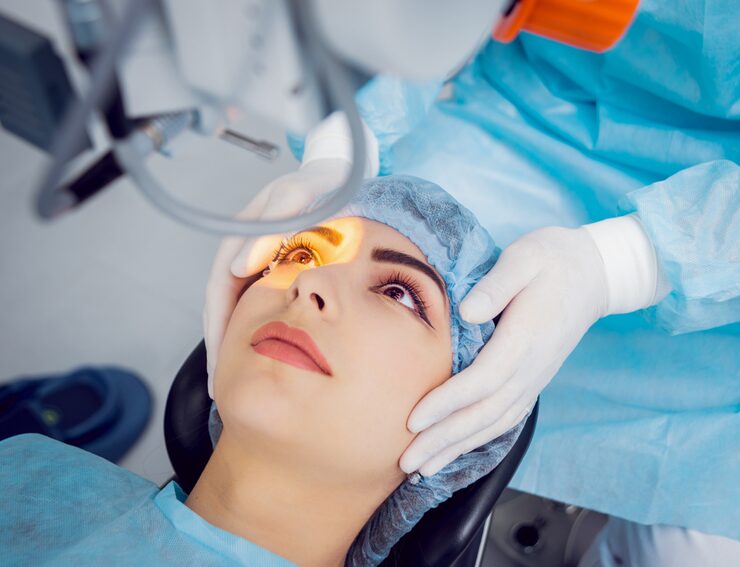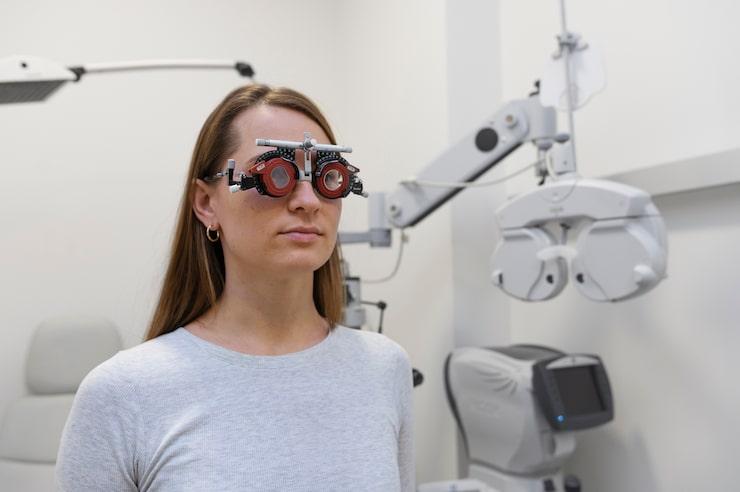
Laser Eye surgery is a popular eye surgery
Millions of people worldwide use glasses and contact lenses every day. These technologies do a good job of fixing eyesight, but they can also be annoying, limiting, or even painful. Laser eye surgery, often called refractive surgery, has become a life-changing option in the last few decades. It can give you a clear vision without the need for glasses or contacts.
But you shouldn't decide to have laser eye surgery lightly. Timing, age, eye health, lifestyle factors, and overall health are all critical in determining if someone is a good candidate. This blog goes into great detail on the best times and medical and lifestyle conditions for laser eye surgery to be safe and effective.
Laser eye surgery is a medical technique that uses cutting-edge laser technology to change the curvature of the cornea, which is the clear front surface of the eye. It fixes refractive problems by changing how light enters and focuses on the retina. For example, myopia (nearsightedness) makes it hard to perceive things that are far away.
Not everyone can get laser eye surgery at every stage of life. The appropriate timing makes sure that the best long-term results happen and that the danger of complications is as low as possible.
1. Things to think about with age
Younger than 18:
People under 18 don't often get laser eye surgery because their eyes are still growing. The prescription for the refractive error may keep changing a lot over the adolescent years, and having surgery too soon raises the chance of regression.
Best Age: 20 to 40 Years Old
Most eye doctors think that the ideal age range for laser eye surgery is between 20 and 40. At this point, the prescription usually stays the same, and younger patients typically get better rapidly.
After 40 Years Old: People in their 40s may start to get presbyopia, which is when their near vision gets worse because the natural lens becomes stiffer. Laser surgery can still fix distance vision, but you may require other procedures like monovision LASIK or lens replacement surgery.
People over 60: Cataracts are more common in older persons. In some situations, cataract surgery with intraocular lens (IOL) implantation might be a better choice than laser surgery.
2. A vision that is stable is important
Prescription stability is one of the most crucial things to think about when it comes to scheduling. Most of the time, doctors say that your glasses or contact lens prescription shouldn't have altered much in the 12 to 24 months before surgery. Unstable vision could mean that your eyes are still growing or that you have other health problems that could make the operation less effective over time.
3. Timing of lifestyle
Patients generally select laser surgery when they can take some time off to recuperate, even if LASIK itself heals quickly. For instance, athletes or soldiers might plan surgery during their off-season or breaks from training. Sometimes, brides and grooms plan their wedding months in advance so they may take pictures without glasses. Students and professionals should organize their work or school around exam times or business assignments to avoid eye strain while they recover.

Many conditions affect your eligibility for laser eye surgery
The timing of laser eye surgery usually doesn't matter; certain medical and eye factors affect whether the treatment is safe and works.
1. Requirements for Eye Health
The cornea needs to be thick enough to be reshaped. Thin or uneven corneas increase the risk of problems.
2. Health problems that affect the whole body
Some systemic health conditions may delay or make laser eye surgery unsafe:
3. How bad the refractive error is
Laser surgery works best when the prescription is in a particular range. For instance:
Patients whose prescriptions fall outside of these ranges may need other procedures, such as lens implants.
If you and your eye doctor agree that the time and conditions are correct, you need to get ready:
Plan for Recovery: Most patients go back to work after 2–3 days, but taking a few days off helps their eyes feel better.
Getting Better

People with certain conditions are not eligible for laser eye surgery
It's just as vital to know when not to get the procedure: when you're a teenager or young adult and your prescriptions are changing.
In certain situations, it might be safer to wait until the problems are fixed or stabilized, or to choose a different method.
Not everyone is a good candidate for LASIK or PRK, but there are other ways to fix your vision:
The optimal moment for surgery also relies on how ready a person is to change their lifestyle:
Do you want to live without glasses or contacts?
Are your hopes realistic?
Can you stick to stringent post-surgery care, including not scratching your eyes or swimming for a few weeks?
If you answer "yes" to these questions, it means you might be ready.
Millions of people can now see brilliantly without glasses or contact lenses because of laser eye surgery. However, it is not right for everyone at every stage of life. Most of the time, the best time to do it is between the ages of 20 and 40, when your eyesight is stable and your eyes are in good health. The correct conditions, healthy corneas, steady prescriptions, and no other medical or systemic problems that could make things worse are also very crucial.
Some people may need to wait till after pregnancy or until their diabetes is better controlled. Others may need to use lens-based options later on. In the end, the choice needs to be made after talking to an experienced ophthalmologist, setting realistic goals, and making plans.
Laser eye surgery is more than simply getting better eyesight; it's also about picking the correct time in life and making sure all the conditions are right for long-term success.
We offer expert care across key specialties, including Medicine, Cardiology, Orthopaedics, ENT, Gynaecology, and more—delivering trusted treatment under one roof.
Prakash Hospital Pvt. Ltd. is a 100 bedded NABH NABL accredited multispecialty hospital along with a center of trauma and orthopedics. We are in the service of society since 2001.
OUR SPECIALITIES
Contact Us
D – 12A, 12B, Sector-33, G. B. Nagar, Noida, Uttar Pradesh 201301
+91-8826000033

© 2026 All rights reserved.
Designed and Developed by Zarle Infotech